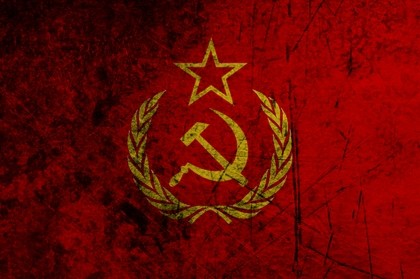The Welsh Government is as transparent as Soviet Russia, according to an interview with Daran Hill and Professor Laura McAllister in the BBC’s Wales Report. Gary Raymond asks where are the reactions from our artists?
Last year I attended a conference in Cardiff hosted by the Index on Censorship designed to examine the notion of freedom of speech in Wales (in the arts in particular). It was a largely mild-mannered day, if I remember rightly, the climax of which was a panel debate of some of Wales’ big hitters when it comes to arts organisations. Everything that was said was very interesting, but most interesting was when Artistic Director of National Theatre Wales, John McGrath, said that although it was always good to have debates on this subject, and to keep the debates alive, he did not believe in the premise of the panel; that there was any problem with, or threat to, freedom of speech in the arts in Wales. We are not Zimbabwe, after all; neither are we Uganda or even Soviet Russia.
And this was what sprung to mind when watching The Wales Report interview with Daran Hill and Professor Laura McAllister on Wednesday night. Apparently, as we in the arts in Wales have been blithely congratulating ourselves warmly for how open and mature we are (no laughing at the back, please), the Welsh Government has been slowly modelling themselves on the Soviet attitude to transparency.

The fourth Assembly, said Mr Hill, leading political commentator on Welsh matters, is “the most closed and least transparent” one there has been. Professor McAllister, a devolution specialist at Liverpool University, went as far as to say Wales is governed ( at all levels) with a “pretty immature culture of scrutiny”.
Wales, says Professor Laura McAllister, has yet to come to terms with the grown-up business of being a democratically functioning civil society. The implications of these views from these two very highly-respected commentators could, and should, be far-reaching. All over Twitter light was shining into previously dark corners and the declarations of Messrs. Hill et McAllister were being backed up and even cheered.
The WG’s response to these claims was to put up Business Minister Jane Hutt who excellently displayed much of the characteristics her government were being accused of harbouring – cagey, smug, dismissive, superior. Her performance was a gradually befuddling chair-shuffling dance of platitudinous nonsense. Assembly backbenchers who criticise the government are not disappeared to labour camps, but they are sacked. The difference is just a matter of dramatic interpretation.
But what really do we expect as a nation? We have a very weak national media, and as a result a government so lachrymose that a simple report from a weekly half hour news programme can punch holes through its soul. More scrutiny like this can only make the government stronger, and thus make the governing better.
But it is not just down to a cash-strapped media to fire these grenades into government bunkers. And freedom of speech is not just about ensuring barriers are broken down where they exist, and remain absent from places they do not. Freedom of speech is a responsibility, and the arts community of Wales is very quiet in its role. If Daran Hill and Laura McAllister are right, and the Welsh Government is run like the politburo, then where is our Pasternak or Solzhenitsyn, our Akhmatova or Tsveteava? And here is the most well-kept secret of the Welsh Governemnt, brought to you in Wales Arts Review exclusive: Welsh politics is not dull.
In this country we are in the long and envigorating process of nation building – there can be few collective human endeavours as beautiful, as exhausting, as important, or as dramatic. It has been the efforts of the Welsh Government to make it seem dull that has been perhaps the greatest artistic achievement Wales has ever made. But this is a dark art, and although our artists will thankfully never be threatened with the terrible inspirations of gulag or death squad, it is imperative our creative forces respond to this spinning down of governance, this contempt for the Welsh people. So perhaps it’s time to stop writing poems about pit ponies and plays about kooky matriarchs and take a look at Cardiff Bay. We have a responsibility to do so.
Gary Raymond is an editor and regular contributor to Wales Arts Review.



 Enjoyed this article? Support our writers directly by buying them a coffee and clicking this link.
Enjoyed this article? Support our writers directly by buying them a coffee and clicking this link.








